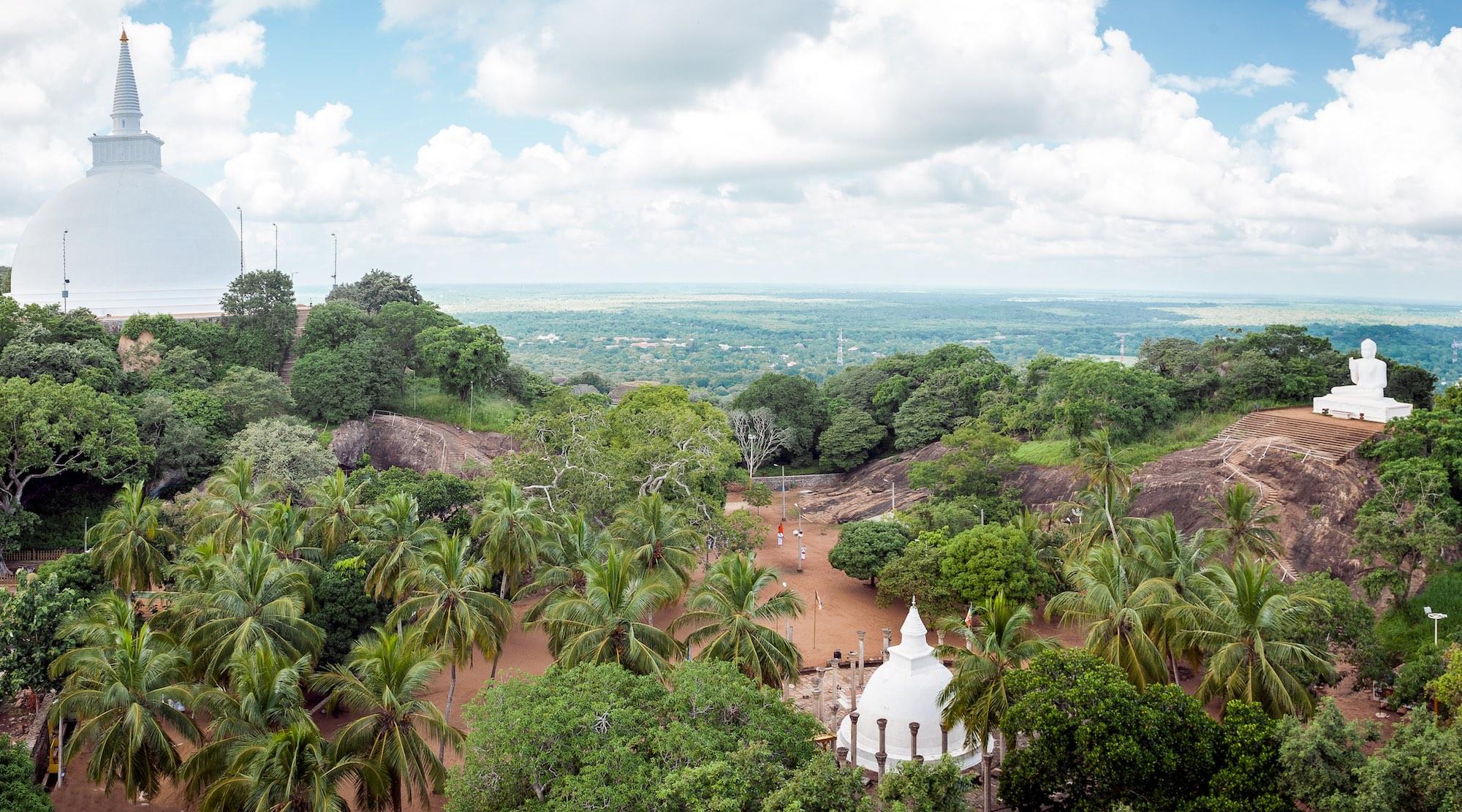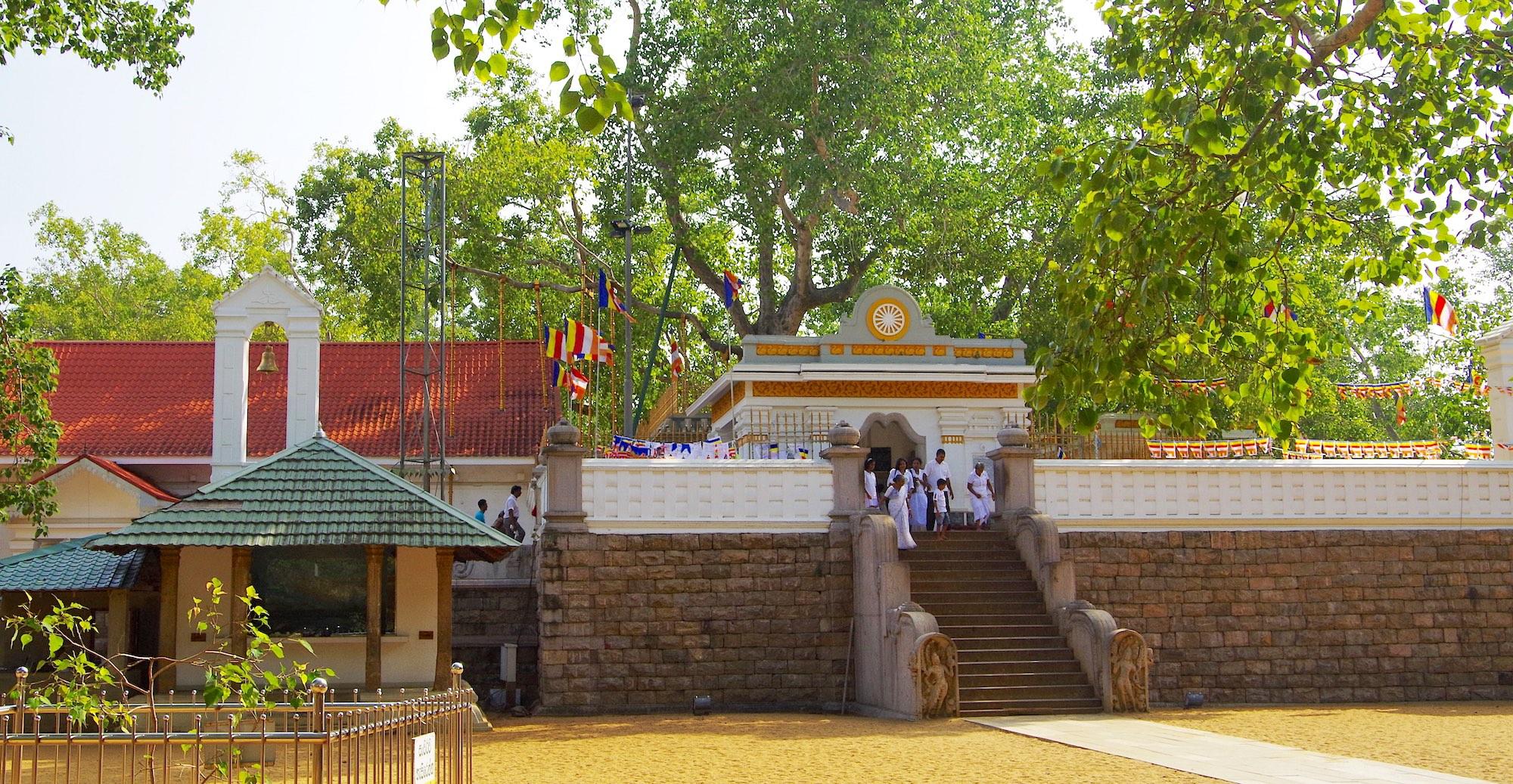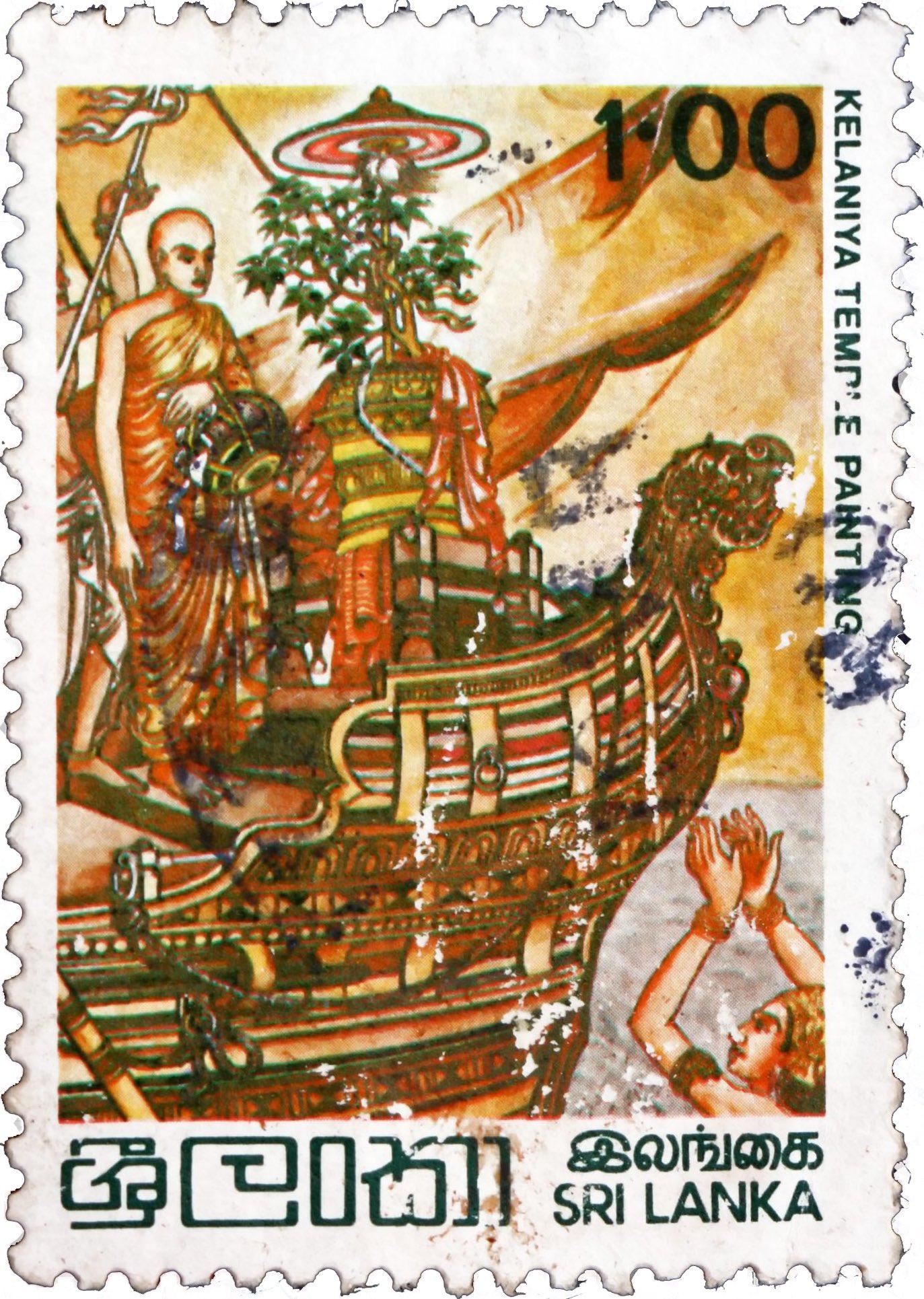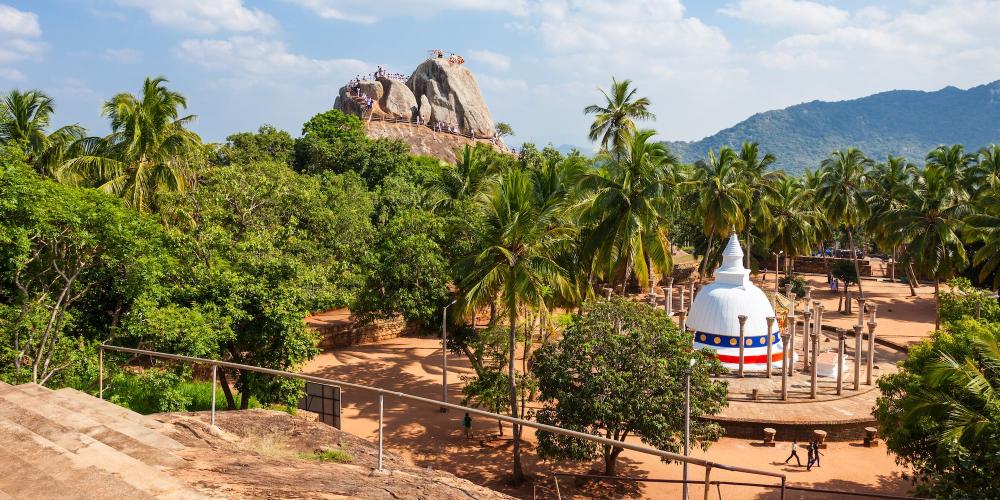Sanchi's link to Sri Lanka

The Great Stupa at Sanchi will forever stand as a symbol of the influential mission of Emperor Ashoka to spread Buddhism across India. But this location is also the genesis of a separate mission that would take the growing religion even further afield.
It's said that the reason Emperor Ashoka chose to build this stupa at Sanchi was because he had stopped at nearby Vidisha on his way home and had fallen in love with a local woman. Her name was Devi and she was, by all accounts, beautiful. But she did not want to leave her home and follow Ashoka and so, although they were apparently married, Devi stayed in Vidisha and he built the stupa in her honour.
The couple had three children – two sons called Ujjainiya and Mahendra, and a daughter called Sanghmitra. When Mahendra was older, he set off from Vidisha on a mission to Sri Lanka to spread the word of Buddhism and the spiritual messages of his father.

The mission was successful and the ruler of Sri Lanka, King Devanampiya Tissa, converted to Buddhism. As more people from the royal family and the lower classes came into the fold of the new religion, a monastery was established.
Mahendra (who is called Mahinda in Sri Lanka), sent for his sister Sanghmitra, who is said to have travelled to the island nation with a piece of the Bodhi tree under which Buddha achieved enlightenment, and it was planted at Anuradhapura. She also founded an order of nuns.

Both Mahendra and Sanghmitra lived the rest of their lives in Sri Lanka and ultimately died there. Their legacy cannot be overstated. More than two millennia later, Sri Lanka is still predominately a Buddhist country. The order of nuns that Sanghmitra founded was operational for more than a thousand years. And Mahendra had lasting influences in cultural aspects like literature and architecture.

These two children of Ashoka, natives of Vidisha who grew up in the shadow of the Great Stupa of Sanchi, are still revered today and have made the site an important pilgrimage destination for Sri Lankan Buddhists.

